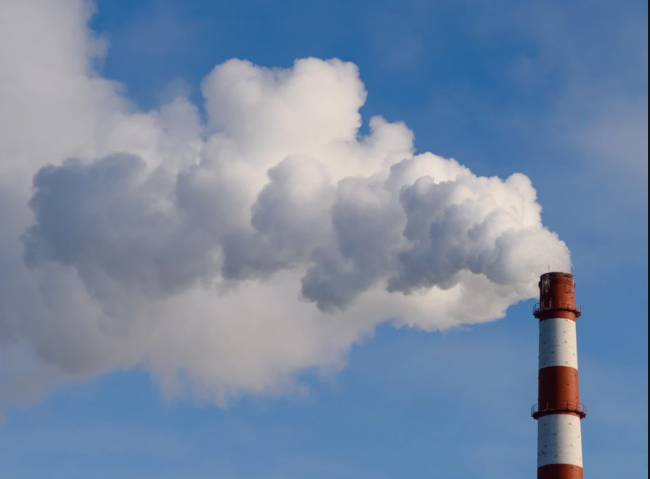Articles Menu

Apr. 21, 2023
Climate advocates are sounding the alarm that B.C. is failing to curb greenhouse gas emissions and will struggle to meet its own climate change targets.
The most recent data released by the federal government shows that B.C.’s carbon emissions increased by 1.1 per cent in 2021, after several years of marginal declines.
“B.C.’s emissions remain stubbornly high,’ said Jens Wieting, a science adviser at Sierra Club B.C. “That’s a huge and growing concern, because the climate science is devastatingly clear that there’s so little time left to reduce emissions drastically.”
The emissions increase in 2021 was most likely due to the resumption of activity following the height of the COVID-19 pandemic, according to a spokesperson from the Ministry of Environment.
The province’s Clean B.C. program aims to reduce GHGs in 2025 by 16 per cent from 2007 levels and 40 per cent by 2030. So far, emissions have fallen by less than three per cent.
“Every year of failure at reducing pollution is moving us closer to even more catastrophic climate disasters,” Wieting said.
“If we fail to reduce emissions today, we will not have another kick at the can in five or 10 years,” he said.
The oil and gas industry is responsible for 20 per cent of B.C.’s total greenhouse gas emissions. It creates nearly half of all industrial emissions in the province.
Last March the government announced a plan to reduce oil and gas emissions in the province by at least a third by 2030.
Regulations aren’t yet in place and an emissions cap for the industry won’t be determined until later this year.
During question period in parliament on March 30, Green MLA Adam Olsen criticized the NDP’s continued support of the LNG industry and the lack of details in the NDP’s “Energy action framework.”
“By approving new LNG projects, the B.C. NDP is locking our province into a fossil fuel economy for decades. The impacts of these choices will be far-reaching, including the upstream emissions increased by fracking,” Olsen said.
Environment Minister George Heyman acknowledged that the province — and the oil and gas industry in particular — was in transition.
“The new energy action framework is a way to meet both our climate commitments and build a healthy clean energy economy that is growing around the world and that we want to be on the leading edge of,” Heyman said.
Wieting was skeptical.
“Like several other policy issues, it’s a plan to make a plan,” he said of the NDP’s energy action framework.
Wieting said there were “some good steps” in the Clean B.C. plan but worried continued investment in the oil and gas industry would undermine those efforts.
“These efforts — that will show some results — will be overshadowed by the new LNG terminals and the associated increase in emissions from fracking,” he said.
[Top photo: Climate advocates are sounding the alarm that B.C. is failing to curb greenhouse gas emissions and will struggle to meet its own climate change targets. PHOTO BY RIVER34 /Getty Images/iStockphoto]